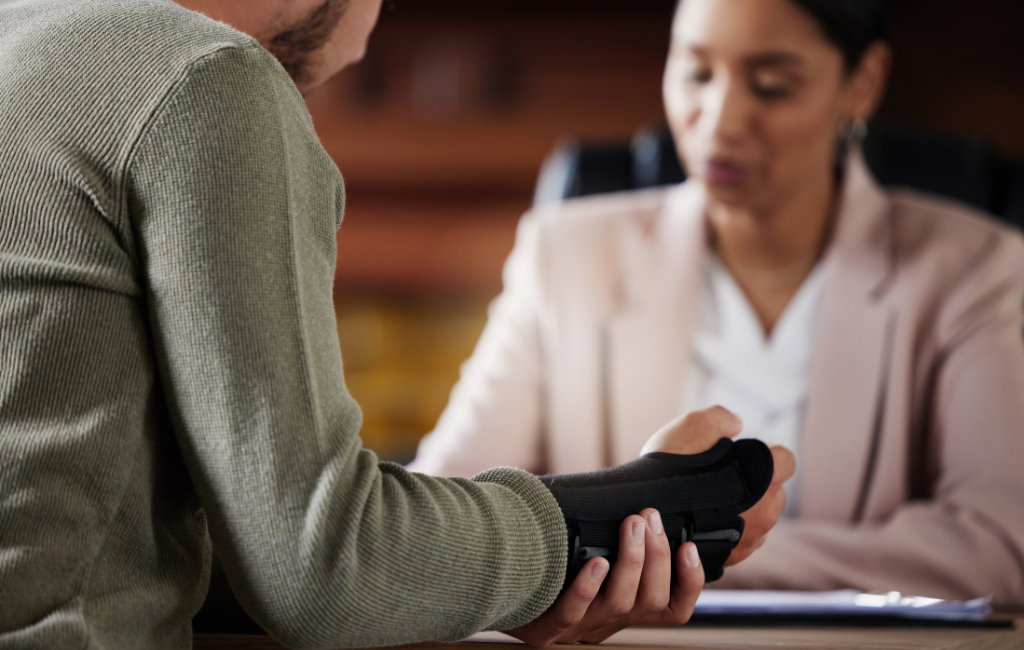When to Hire a Personal Injury Lawyer After an Accident
Accidents can be life-altering events, often leaving victims with physical injuries, emotional trauma, and financial burdens. Navigating the aftermath of an accident can be overwhelming, and understanding when to seek legal assistance is crucial. This article explores the circumstances under which hiring a personal injury lawyer becomes necessary and beneficial.
Understanding Personal Injury Law
Personal injury law encompasses legal disputes that arise when one person suffers harm from an accident or injury, and someone else might be legally responsible for that harm. Common types of personal injury cases include car accidents, slip and fall incidents, medical malpractice, and workplace injuries.
Signs You Need a Personal Injury Lawyer
Determining when to hire a personal injury lawyer can be challenging. Here are some indicators that legal assistance may be necessary:
- Severe Injuries: If the accident resulted in significant injuries requiring extensive medical treatment, a lawyer can help secure compensation for medical expenses, lost wages, and pain and suffering.
- Disputed Liability: When there is a disagreement about who is at fault for the accident, a lawyer can gather evidence and build a strong case to prove liability.
- Insurance Company Issues: If the insurance company is denying your claim, offering a low settlement, or delaying payment, a lawyer can negotiate on your behalf to ensure fair compensation.
- Complex Legal Procedures: Personal injury cases often involve complex legal procedures and paperwork. A lawyer can navigate these processes efficiently, ensuring all deadlines are met and documents are properly filed.
Case Studies Highlighting the Importance of Legal Assistance
Real-life examples can illustrate the benefits of hiring a personal injury lawyer:
Case Study 1: Car Accident with Severe Injuries
John was involved in a severe car accident that left him with multiple fractures and a long recovery period. The insurance company initially offered a settlement that barely covered his medical expenses. John decided to hire a personal injury lawyer, who was able to negotiate a much higher settlement that included compensation for future medical treatments and lost wages.
Case Study 2: Slip and Fall Incident
Mary slipped and fell in a grocery store due to a wet floor that was not properly marked. The store’s insurance company denied liability, claiming that Mary was at fault. Mary hired a personal injury lawyer who gathered evidence, including security footage and witness statements, proving the store’s negligence. Mary received a fair settlement for her injuries and lost income.
Statistics on Personal Injury Cases
Statistics can provide valuable insights into the prevalence and outcomes of personal injury cases:
- According to the National Center for Health Statistics, approximately 31 million people are injured in accidents annually in the United States.
- The Insurance Research Council reports that injured individuals who hire a lawyer receive settlements that are 3.5 times higher than those who do not.
- A study by the American Bar Association found that 91% of personal injury cases are settled out of court, often with the assistance of a lawyer.
Steps to Take After an Accident
Taking the right steps immediately after an accident can significantly impact the outcome of your personal injury claim:
- Seek Medical Attention: Prioritize your health by seeking medical attention, even if injuries seem minor. Medical records will also serve as crucial evidence in your case.
- Document the Scene: Take photos of the accident scene, your injuries, and any property damage. Collect contact information from witnesses.
- Report the Accident: Notify the appropriate authorities, such as the police or your employer, and file an official report.
- Consult a Lawyer: Contact a personal injury lawyer to discuss your case and understand your legal options.
Choosing the Right Personal Injury Lawyer
Selecting the right lawyer can make a significant difference in the outcome of your case. Consider the following factors when choosing a personal injury lawyer:
- Experience: Look for a lawyer with extensive experience in handling personal injury cases similar to yours.
- Reputation: Research the lawyer’s reputation by reading client reviews and checking their standing with the state bar association.
- Communication: Choose a lawyer who communicates clearly and promptly, keeping you informed throughout the process.
- Fee Structure: Understand the lawyer’s fee structure, including contingency fees, which means the lawyer only gets paid if you win your case.
Conclusion
Hiring a personal injury lawyer after an accident can significantly impact your ability to receive fair compensation for your injuries and losses. By recognizing the signs that legal assistance is needed, understanding the benefits of hiring a lawyer, and taking the appropriate steps after an accident, you can navigate the complexities of personal injury law more effectively. Remember to choose a lawyer with the right experience, reputation, and communication skills to ensure the best possible outcome for your case.
